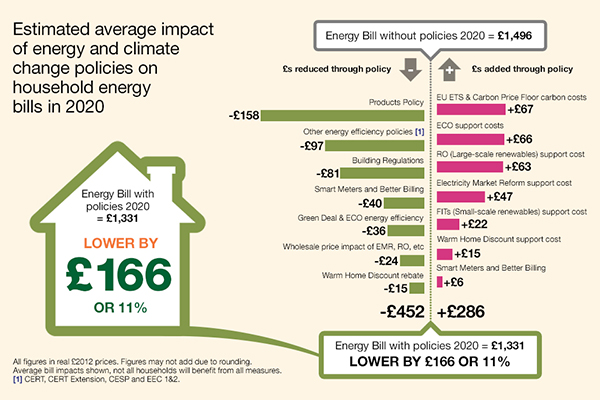Nowadays, there is more than enough evidence that points at how climate change has a direct effect on global weather patterns. In turn, changes in climate impact society, so governments around the world have seen the need for mitigating the effects of climate change by implementing new policies. These policies have far-reaching consequences for both businesses and consumers. However, as it usually happens with official policy documents, understanding the real impact of policy changes is not always straightforward, so in this post we have summarised how the most recent energy and climate change policy will likely affect consumers in the UK.
The cost of energy bills
Market analysts predict that energy bills will continue their upward trend in the short term. Contrary to popular belief, this inescapable fact is not a direct effect of climate change policy, but rather a consequence of the declining availability of fossil fuels and of the soaring costs involved in their extraction and distribution. Some aspects of climate change policy will add to your energy bills, whereas others will contribute to lowering them. So what exactly will be the economic impact of climate change policy on the average consumer? According to the DECC, by 2020 average energy bills in UK households will be £166 lower than they would be had new policies not been implemented.
New government schemes and initiatives
In an attempt to offset the rising costs of energy bills, the UK government has devised a series of schemes and initiatives with the objective of mitigating the social, human, and economic costs of climate change. Several aspects of the Electricity Market Reform are already underway. This policy development aims to facilitate the shift to a low-carbon electricity generation industry in a way that guarantees energy supply to UK households at the lowest possible cost. It is estimated that by 2030 and as a result of this reform, average domestic energy bills will be £38 and £53 lower than they currently are. What is more, the full implementation of the Electricity Market Reform will impact consumers in other ways too, as it is expected that it will help create new jobs as the demand for skilled professionals grows.
Schemes like the Green Deal and the Warm Home Discount Scheme have been set up to improve the energy efficiency of UK households while bringing better quality of life to consumers and reducing their energy bills. These schemes will affect everything from lighting to TV set-top boxes, and including smart meters, condensing boilers, and fully insulated homes.
To sum up, as consumers we can expect that climate change policies will translate into more efficient and economical homes and household appliances, as our energy consumption habits become more aligned with international climate change policy directives.

